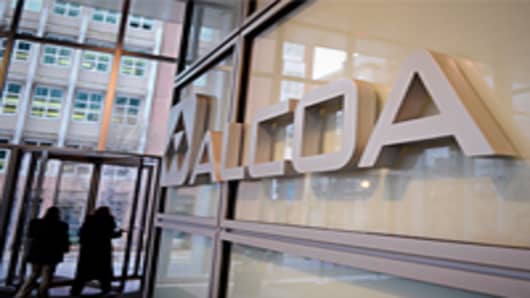Aluminum giant Alcoa has long been regarded as a bellwether for the U.S. economy and a key gauge of the health of the commodities sector. But one strategist is challenging the notion.
"I don't understand how we keep talking about Alcoa as a global barometer for commodities and yet 50 percent of its revenues come from the United States,” said John Licata, Chief Commodity Strategist at research consultancy Blue Phoenix told CNBC on Tuesday. “How is it indicative of a true market place? To me that is flawed."
Alcoa has also consistently lagged the market in financial performance, Licata noted, despite the sector’s booming track record in recent years.
“How can a perennial disappointer in terms of earnings fit the bill as the leader, as the benchmark, if it's constantly underperforming the commodity space despite the rally that we've been seeing in commodities across the past couple of years?" he questioned.
Alcoa kicked off the second quarter earnings season on Monday with profit that matched expectations, and topped forecasts on the revenue front. Chief executive Klaus Kleinfeld was upbeat about the outlook, citing growing demand for aluminum in the aerospace sector.
However, Licata is concerned that the optimism is exaggerated, and that investors may be missing an important development in the past week – the planned implementation of Australia's carbon tax.
"I'm surprised that a lot of people have not taken a closer look at this, considering that Alcoa gets 13 percent of their revenues from Australia," he said.
Australia's government introduced a carbon tax scheme on Sunday to cut carbon emissions by 5 percent off 2000 levels by 2020. The program could raise costs for miners and hurt their profitability.
Licata believes companies like Rio Tinto and BHP Billiton make better ‘bellwethers’ of the global economy as they are much more diversified and have a bigger global presence, compared to Alcoa.
For investors looking for exposure into the aluminum space, Licata recommends alternative metals that are increasingly being used as substitutes for aluminum.
"I'd rather be involved in different metals that can possibly be used for lighter transport, [which are] more efficient [and] that could possibly be blended as a substitute for aluminum like vanadium," he said. Vanadium is a rare earth metal found in Russia, China and Brazil.
He likes stocks with exposure to vanadium, such as Denizen Mines , Crosshair Exploration , American Vanadium .


